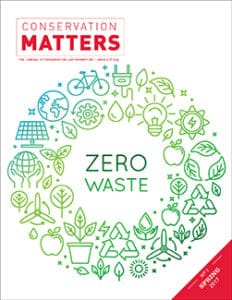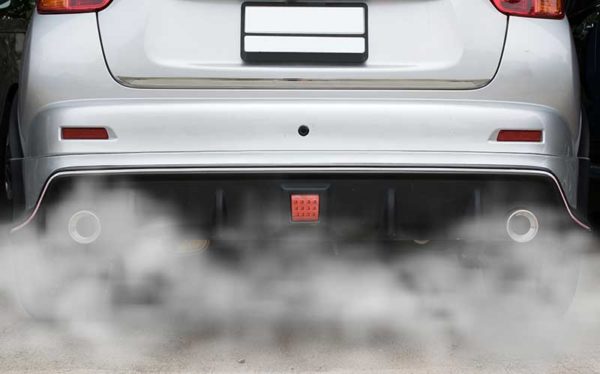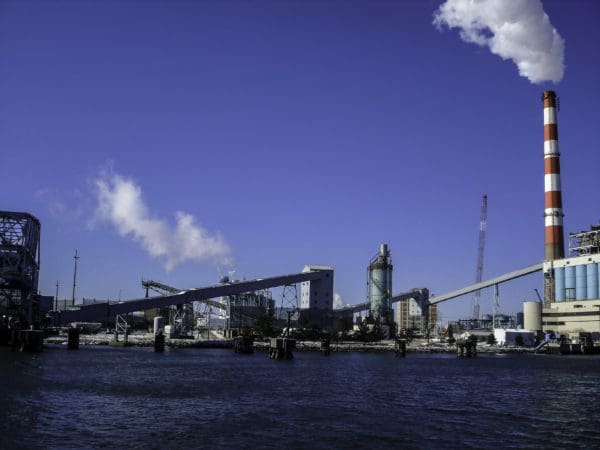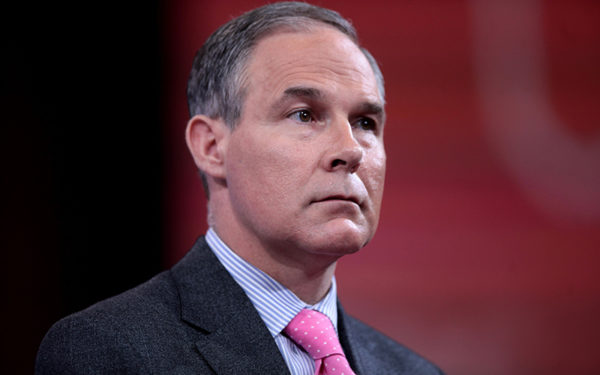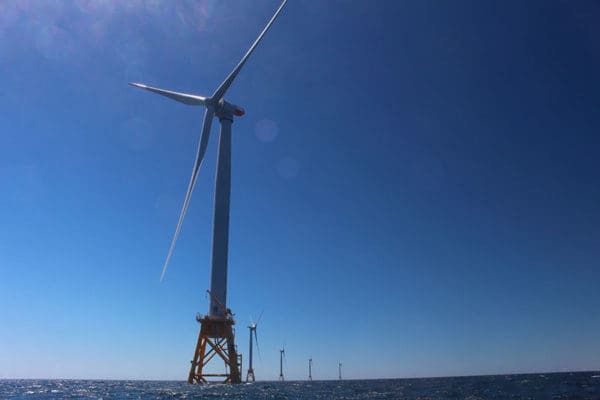Apr 22, 2017
Talking Trash CLF Launches Zero-Waste Project to Tackle Massachusetts’s Trash Problem Getting Smart about Energy Energy Efficiency Under Fire in Maine Why I Give Rebecca LaRocque Five Questions For… Rebekah Weber, Lake Champlain Lakekeeper
Apr 12, 2017
On March 28th, President Trump signed an executive order that launched a full-scale attack on our national progress in protecting public health and the environment from dangerous climate change. The so-called Energy Independence Order asks EPA to reconsider the Clean Power Plan, the first-ever federal rule designed to reduce climate-warming emissions from power plants, as… Continue reading CLF and New England Battle Back as President Trump Attacks U.S. Climate Progress
Mar 30, 2017
Big Gas’s claims about a dire need for new gas pipelines in New England are not based in objective fact. As CLF recently noted, electricity prices and demand are down, and we have ample gas available when we need it most. And, more importantly, large batches of clean energy resources will be coming online over… Continue reading More Evidence of Big Gas’s Bad Deal for New England
Mar 20, 2017
President Trump’s first 100 days in office started with a bang – as in, the sound of a shot through the heart of our country’s environmental protections. One of the President’s first official actions was to sign an executive order that requires federal agencies to axe two existing regulations for each new regulation they create.… Continue reading Trump’s “Two-for-One” Order is Bad for the Environment
Mar 17, 2017
On Wednesday, President Trump took the first step toward rolling back emissions standards for new cars and trucks in model years 2022–2025. These important federal standards set fuel economy (miles per gallon, or “MPG”) requirements that save you money at the pump and reduce our dependence on foreign oil. They also reduce dangerous climate emissions… Continue reading Trump Administration Takes a Treacherous U-Turn on Clean Car Standards
Mar 07, 2017
The people of Bridgeport, Connecticut have lived under the shadow of the Bridgeport Harbor Station power plant for decades now. This old and inefficient power plant is one of the last in New England that still runs on coal, a dirty and expensive fuel that generates high levels of climate-damaging emissions – not to mention air… Continue reading Proposed Power Plant Would Spew A Million New Tons of Climate-Damaging Emissions
Mar 02, 2017
If you recently deleted your Uber app in response to the consumer boycott over the ride-hailing company’s behavior during the protests against Trump’s travel ban, you may want to think twice before you reinstall it. While Uber has amassed at least three more scandals since then, a new report is also giving us a first… Continue reading #DeleteUber Campaign Could Be Good for the Environment
Feb 24, 2017
Climate change will impact septic systems. Lawmakers can get ahead of this clean water issue by adapting septic system regulations to the climate changes to come.
Feb 17, 2017
Scott Pruitt is more than just a threat to our environment – he’s a threat to our economy, our safety, and our entire way of life. The stakes are too high to stand idly by. CLF is ready for the fight.
Feb 16, 2017
For three years now, Big Gas has been spinning tall tales aimed at scaring you and me – and especially our local politicans – into locking in our addiction to dirty, polluting natural gas for decades to come. But their hype ignores the facts and the very real progress made over the past few years to avoid price spikes, keep the lights on, and tamp down our emissions of climate-damaging pollution.
